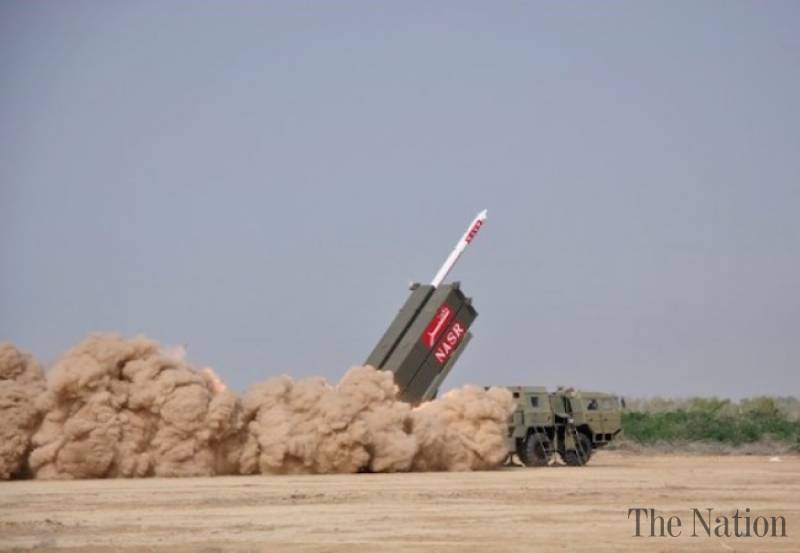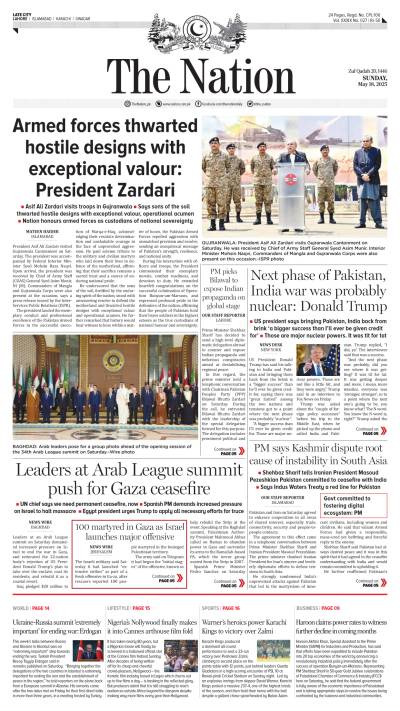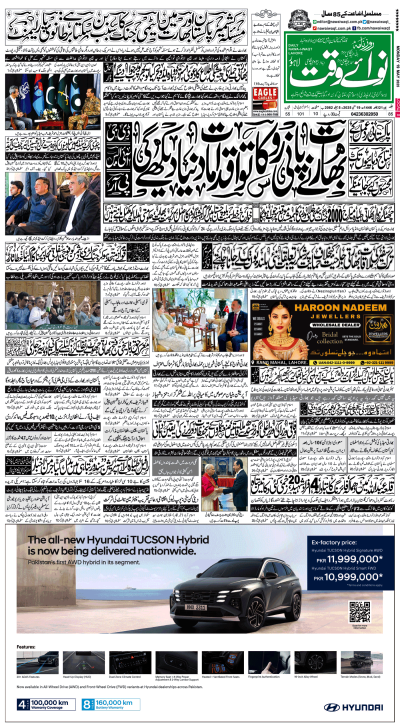The Full Spectrum Deterrence (FSD), a proactive defense strategy evolved by Pakistan, has helped it significantly dilute the multiple security threats posed by India’s dangerous conventional war doctrines- the Cold Start Doctrine (CSD) and Pro-Active Actions (POA). In the same manner, a number of Kinetic Military Actions, ranging from full-fledged military operation like Zarb-e-Azb to IBO’s, Combing Operations, and the most recent Operation Rudd-ul-Fasaad have also gone a long way in effectively curbing the militancy and foreign-funded terrorism in Pakistan. Despite the post-Uri attack military escalation between the two countries, India could not even dare to conduct the much-hyped “surgical strikes” inside Pakistan’s territory. So, now, India can launch no military offensive against Pakistan beyond resorting to cross-border shelling as it is doing off and on.
In my last column titled “Isolating Pakistan”, I tried to exhaustively elaborate how aggressively India had launched a diplomatic onslaught against Pakistan to diplomatically isolate the latter in the world. Quite worryingly, Pakistan has yet not devised any comprehensive strategy to counter India’s current diplomatic propaganda against it. Consequently, India is freely advancing its foreign policy agenda against Pakistan in the world. Currently, most of the debates and discussions in Pakistan regarding our foreign policy are primarily revolving around the appointment of a full-time foreign minister in the country. Undeniably, appointing a full-time Foreign Minister would help improve the efficiency of our Foreign Office. However, this act alone would hardly help in significantly improving the state and quality of our foreign policy. Certainly, we need to evolve an effective diplomatic strategy and its effective implementation.
At this stage, it is quite advisable for Pakistan to devise Full Spectrum Diplomacy- a comprehensive, multi-pronged and multi-tiered diplomacy- to offer a qualitative response to India’s extensive diplomatic maneuvering against it. Bedsides the traditional diplomatic channels, the new or public diplomacy should also be an important component of the proposed strategy. Moreover, it should also be proactive instead of being reactive, which usually only aims at ‘damage-control’ at the international level. Pakistan has to carefully set some goals for its foreign policy. The primary objective of our so-called Full Spectrum Diplomacy should be the positive projection of Pakistan in the world. The two fundamental things would shape the contours of this diplomacy i.e. its substance or the stuff, and some necessary tools to enforce it.
First of all, Pakistan should thoughtfully select some fundamental points or elements that are to be propagated through its proposed diplomatic strategy. To begin with, Pakistan should actively project its distinguished counter-terror credentials in the world. The world community must know how seriously and sincerely has Pakistan acted to curb the menace of terrorism on its very soil. Pakistan military has proactively launched a number of full-fledged military operation against the militants and extremists across the country during the last decade. Thousands of Pakistani soldiers have laid down their lives in these operations. The recently-concluded Operation Zarb-e-Azb in North Waziristan is the most successful and most extensive counter-terror maneuvering in the world in recent times. Moreover, the law enforcing agencies in Pakistan are also taking certain preventive measures to nip this evil in the bud. Therefore, Pakistan can by no means be blamed for supporting terrorists, or otherwise promoting terrorism in the religion.
Secondly, instead of only becoming apologetic and defensive to the terror allegations levelled by India, Pakistan should aggressively launched an all-out diplomatic onslaught against India internationally by actively highlighting the dirty role played by India in planning, prompting and supporting terrorism in Pakistan. The world community should be told how India has imposed a proxy Fourth Generation War on Pakistan through its hostile intelligence apparatus comprising numerous spies like Kulbhushan Yadav. And how it is fanning the Baloch separatist movements in Pakistan by harbouring and supporting the exiled so-called Baloch nationalist leaders. Indeed, the ‘Godfather’ of proxy terrorists in this region has no right to declare Pakistan the “Mothership of Terror”.
There is also absolutely no comparison between Pakistan and India when it comes to the nature and intensity of terrorism in both countries. In fact, one can just count almost all the terror incidents in India on the fingers of his hand – the 2001 Indian Parliament attack, the 2007 Samjhauta Express bombing, the 2008 Mumbai attacks, the 2015 Gurdaspur attack, the 2016 Pathankot and Uri attacks. On the other hand, there have been more than 800 major terror attacks in Pakistan between 2001 and 2016, resulting in tens of thousands of casualties. Therefore, Pakistan is not an aggressor but rather the most pathetic victim of terror in the region. Similarly, there is also a fundamental difference as to the nature of terror allegations leveled by both countries against each other. India only blames various non-state actors of Pakistan for executing certain terror attacks in India. On the other hand, Pakistan always maintains that India and its important state institutions are actively promoting and supporting terror is Pakistan. India has adopted the terrorism as a primary tool to articulate and achieve its strategic objectives in the region.
Thirdly, Pakistan should also diligently incorporate its Kashmir and Afghan policy in diplomacy. It should highlight the nature of illegal Indian occupation on the state of J&K as well as the gross human rights violations committed by Indian security forces in the disputed state. At the same time, the world community should also be shown how Pakistan has supported the ‘Afghan-led and Afghan-owned’ peace process in Afghanistan, and how India has sabotaged all the recent Afghan peace initiatives for its selfish interests through a subservient Kabul regime.
Pakistan also needs to employ some effective tools of conventional as well as non-conventional diplomacy to effectively propagate its narrative in the world. It should extensively exploit all the formal multilateral forums to propagate its viewpoint on the substantial regional issues, including the terrorism, as India is already doing for a long time. A considerable number of diplomatic missions of Pakistan are performing their duties in almost every part of the world. Pakistan should mobilise its diplomats and consular staff abroad to advance its narrative internationally. Similarly, there is also a large number of overseas Pakistanis in the world. This diaspora can also help project the soft image of Pakistan, provided they are motivated and properly mobilised for this specific purpose.
In addition to the normal channels of traditional diplomacy, Pakistan should also endvaour to employ the newly-devised tools of the public diplomacy to achieve its foreign policy goals. In the current democratic world order, the people generally determine the form and functions of a government in any state. The public opinion influences the policy-formulation and the decision-making process in each state. Therefore, the focus of the public diplomacy is on the general public instead of the public officials or the state functionaries. The communication revolution has substantially transformed the world. The means of mass communication are the recognised instruments of public diplomacy. Pakistan can also utilise the international print and electronic media to propagate its national narrative in the world. At present, compared to India, Pakistan has very low access to the international mass media. Pakistan must now focus on this important tool of propaganda in the contemporary world.
It is high time Pakistan should proactively respond to the hostile diplomatic onslaught of India against it which is harming its vital strategic and economic interests in the world after tarnishing its image as a responsible and peace-loving state. Surely, Pakistan needs to devise a Full Spectrum strategy to counter Indian diplomatic maneuvering as it did to counter the conventional military threat from its arch-foe. Be it the conventional battleground or simply a diplomatic playground, “survival of the fittest” has always been the paramount principle.






